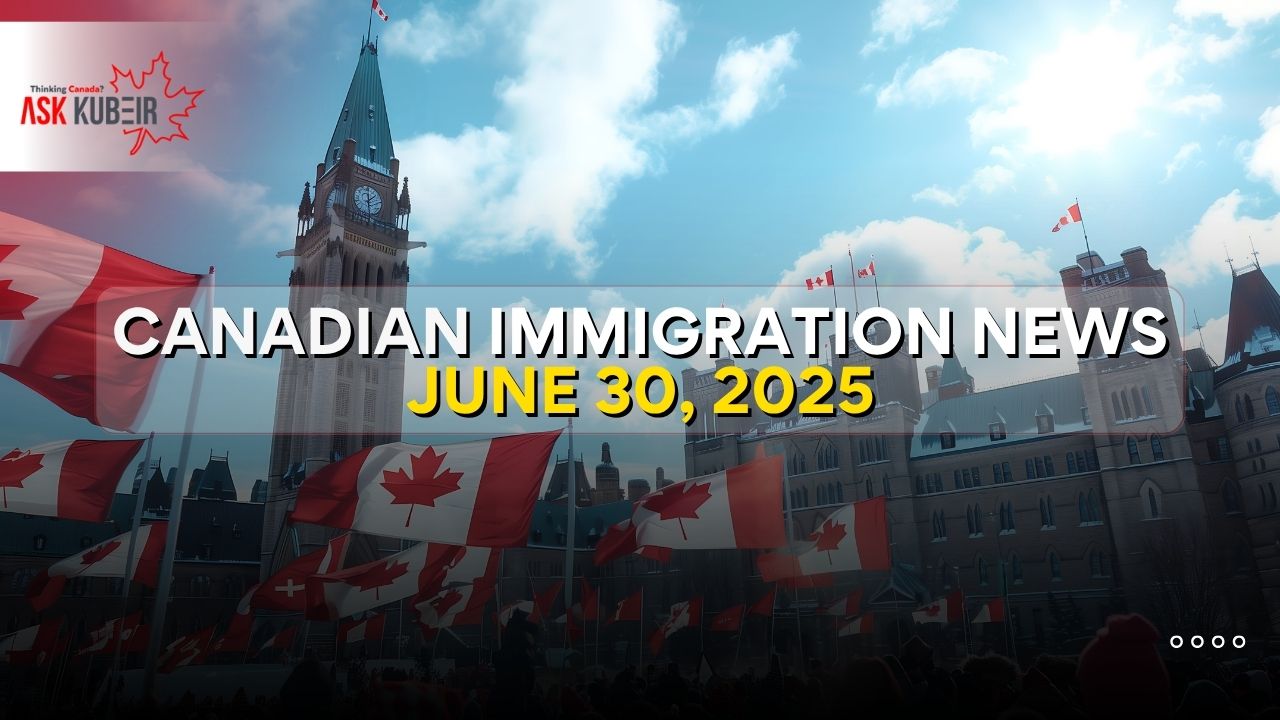
Related Post







Under what conditions can I become #inadmissible to Canada
#Inadmissibility
There are 9 main grounds for inadmissibility into Canada.
Forewarning – This post includes direct references from IRPA (Immigration and Refugee Protection Act). The link to this act is here.
Inadmissibility is covered under Section 33 – Division 4 of the IRPA
A person may be denied a visa, or an Electronic Travel Authorization (ETA), refused entry to or removed from Canada on any of these grounds:
1. Security Grounds:
According to Subsection-34(1) of the IRPA, a PR or a foreign national is inadmissible on security grounds for:
a) Engaging in an act of espionage or an act of subversion against a democratic government, institution or process as they are understood in Canada;
b) Engaging in or instigating the subversion by force of any government;
c) Engaging in terrorism;
d) Being a danger to the security of Canada;
e) Engaging in act/s of violence that would or might endanger the lives or safety of persons in Canada; OR
f) Being a member of an organization that there are reasonable grounds to believe engages, has engaged or will engage in acts referred to in paragraph (a), (b) or (c).
Note:
According to Section-14 of the IRPR (Immigration and Refugee Protection Regulations), for the purpose of determining whether a foreign national or PR is inadmissible under Paragraph-34(1)(c) of the IRPA, where one of the following determinations or decisions has been previously rendered:
i) A determination by the IRB (Immigration and Refugee Board), based on findings that the foreign national or PR has engaged in terrorism, or is a person referred to in Section-F of Article-1 of the Refugee Convention [which makes the Refugee Convention inapplicable to those who have committed war crimes or crimes against humanity]; OR
ii) A decision by a Canadian court under the Criminal Code concerning the foreign national or PR and the commission of a terrorism offense.
Exemption:
According to Subsection-34(2) of the IRPA, the above acts do not constitute inadmissibility in respect of a PR or a foreign national who satisfies the Minister of Immigration that their presence in Canada would not be detrimental to the national interest.
- Human and International Rights Violations:
According to Subsection-35(1) of the IRPA, a PR or a foreign national is inadmissible on grounds of violating human or international rights for:
a) Committing an act outside Canada that constitutes an offense referred to in Sections 4 to 7 [which deal with genocide, crimes against humanity, and war crimes committed inside and outside of Canada] of the Crimes Against Humanity and War Crimes Act;
b) Being a senior official in the service of a government that, in the opinion of the Minister of Immigration, engages or has engaged in terrorism, systematic or gross human rights violations, or genocide, a war crime or a crime against humanity [murder, extermination, enslavement, deportation, imprisonment, torture, sexual violence, persecution or any other inhumane act or omission that is committed against any civilian population or any identifiable group within the meaning of subsections-6(3) to (5) of the Crimes Against Humanity and War Crimes Act; OR
c) Being a person, other than a PR, whose entry into or stay in Canada is restricted pursuant to a decision, resolution or measure of an international organization of states or association of states, of which Canada is a member, that imposes sanctions on a country against which Canada has imposed or has agreed to impose sanctions in concert with that organization or association.
Note:
According to Section-16 of the IRPR and for the purposes of Paragraph-35(1)(b) of the IRPA, a “senior official” in the service of a government is a person who, by virtue of the position they hold or held, is or was able to exert significant influence on the exercise of government power or is or was able to benefit from their position, and includes:
i) Heads of state or government;
ii) Members of the cabinet or governing council;
iii) Senior advisors to persons described in Paragraph (a) or (b);
iv) Senior members of the public service;
v) Senior members of the military and of the intelligence and internal security services;
vi) Ambassadors and senior diplomatic officials; AND
vii) Members of the judiciary.
Exemption:
According to Subsection-35(2) of the IRPA, Paragraphs-35(1)(b) & 35(1)(c) of the IRPA do not apply in the case of a PR or a foreign national who satisfies the Minister that their presence in Canada would not be detrimental to the national interest. However, no exemption exists for persons described in Paragraph-35(1)(a); such persons are forever inadmissible.
- Criminality:
According to Subsection-36(1) & (2) of the IRPA, a PR or a foreign national is inadmissible on grounds of serious criminality for:
a) Having been convicted in Canada of an offense under an Act of Parliament punishable by a maximum term of imprisonment of at least 10-yrs., or of an offense under an Act of Parliament for which a term of imprisonment of more than 6-months has been imposed;
b) Having been convicted of an offense outside Canada that, if committed in Canada, would constitute an offense under an Act of Parliament punishable by a maximum term of imprisonment of at least 10-yrs.;
c) Committing an act outside Canada that is an offense in the place where it was committed and that, if committed in Canada, would constitute an offense under an Act of Parliament punishable by a maximum term of imprisonment of at least 10-yrs.; OR
d) Committing, on entering Canada, an offense under an Act of Parliament prescribed by regulations viz: (1) the Criminal Code; (2) the IRPA; (3) the Firearms Act; (4) the Customs Act; and (5) the Controlled Drugs and Substances Act].
Rules Governing Criminal Inadmissibility:
According to Subsection-36(3) of the IRPA, the following provisions govern the grounds of inadmissibility described in Subsections 36(1) & 36(2):
i) An offense that may be prosecuted either summarily or by way of an indictment is deemed to be an indictable offense, even if it has been prosecuted summarily;
ii) Inadmissibility under Subsections 36(1) & 36(2) may not be based on a conviction in respect of which a pardon has been granted and has not ceased to have an effect or been revoked under the Criminal Records Act, or in respect of which there has been a final determination of an acquittal;
iii) The matters referred to in Paragraphs 36(1)(b) & 36(1)(c) and 36(2)(b) & 36(2)(c) do not constitute inadmissibility in respect of a PR or foreign national who, after the prescribed period, satisfies the Minister that they have been rehabilitated or who is a member of a prescribed class that is deemed to have been rehabilitated;
iv) A determination of whether a PR has committed an act described in Paragraph-36(1)(c) must be based on a balance of probabilities; and
v) Inadmissibility under Subsections 36(1) & 36(2) may not be based on an offense designated as a contravention under the Contraventions Act or an offense under the Young Offenders Act.
Deemed Rehabilitation:
As stated in Paragraph-36(3)(c) of the IRPA, it is also possible for certain inadmissible persons to be automatically considered rehabilitated. If this deemed rehabilitation applies, the person is no longer considered inadmissible. The persons (or members of the class of persons) deemed to have been rehabilitated who have been convicted outside Canada of no more than one offense that, if committed in Canada, would constitute an indictable offense under an Act of Parliament, if all of the following conditions apply, namely:
1. The offense is punishable in Canada by a maximum term of imprisonment of less than 10-yrs.,
2. At least 10-yrs. have elapsed since the day after the completion of the imposed sentence,
3. The person has not been convicted in Canada of an indictable offense under an Act of Parliament,
4. The person has not been convicted in Canada of any summary conviction offense within the last 10-yrs. under an Act of Parliament or of more than one summary conviction offense before the last 10 years, other than an offense designated as a contravention under the Contraventions Act or an offense under the Youth Criminal Justice Act,
5. The person has not within the last 10-yrs. been convicted outside Canada of an offense that, if committed in Canada, would constitute an offense under an Act of Parliament, other than an offense designated as a contravention under the Contraventions Act or an offense under the Youth Criminal Justice Act,
6. The person has not before the last 10-yrs. been convicted outside Canada of more than one offense that, if committed in Canada, would constitute a summary conviction offense under an Act of Parliament, AND
7. The person has not committed an act described in Paragraph-36(2)(c) of the IRPA;
Exemption for Persons Convicted in Canada on Two or More Summary Offences:
According to Subsection-18.1 of the IRPR, foreign nationals who are inadmissible under Paragraph-36(2)(a) of the IRPA solely on the basis of having been convicted in Canada of two or more offences that may only be prosecuted summarily, under any Act of Parliament, cease to be inadmissible if it has been at least 5-yrs. since the day after the completion of the imposed sentences.
- Organized Criminality:
According to Subsection-37(1) of the IRPA, a PR or a foreign national is inadmissible on grounds of organized criminality for:
a) Being a member of an organization that is believed on reasonable grounds to be or to have been engaged in activity that is part of a pattern of criminal activity planned and organized by a number of persons acting in concert in furtherance of the commission of an offence punishable under an Act of Parliament by way of indictment, or in furtherance of the commission of an offence outside Canada that, if committed in Canada, would constitute such an offence, or engaging in activity that is part of such a pattern; OR
b) Engaging, in the context of transnational crime, in activities such as people smuggling, trafficking in persons or money laundering [this list is not intended to be exhaustive].
Exemptions:
According to Subsection-37(2) of the IRPA:
i) Subsection-37(1) does not apply in the case of a PR or a foreign national who satisfies the Minister that their presence in Canada would not be detrimental to the national interest; AND
ii) Paragraph-37(1)(a) does not lead to a determination of inadmissibility by reason only of the fact that the PR or foreign national entered Canada with the assistance of a person who is involved in organized criminal activity [in other words, persons whose involvement with criminal organizations is limited to having used their services for the purpose of coming to Canada to claim refugee protection, will not be considered a member of such organization and will have access to the refugee determination process].
- Health Grounds:
According to Subsection-38(1) of the IRPA, a foreign national is inadmissible on health grounds if their health condition:
a) Is likely to be a danger to public health [according to Section-31 of the IRPR, before concluding whether a foreign national’s health condition is likely to be a danger to public health, an officer who is assessing the foreign national’s health condition shall consider (1) any report made by a health practitioner or medical laboratory with respect to the foreign national; (2) the communicability of any disease that the foreign national is affected by or carries; and (3) the impact that the disease could have on other persons living in Canada];
b) Is likely to be a danger to public safety [according to Section-33 of the IRPR, Before concluding whether a foreign national’s health condition is likely to be a danger to public safety, an officer who is assessing the foreign national’s health condition shall consider: (1) any reports made by a health practitioner or medical laboratory with respect to the foreign national; and (2) the risk of a sudden incapacity or of unpredictable or violent behaviour of the foreign national that would create a danger to the health or safety of persons living in Canada]; OR
c) Might reasonably be expected to cause excessive demand on health or social services [according to Section-34 of the IRPR, before concluding whether a foreign national’s health condition might reasonably be expected to cause excessive demand, an officer who is assessing the foreign national’s health condition shall consider: (1) any reports made by a health practitioner or medical laboratory with respect to the foreign national; and (2) any condition identified by the medical examination].
The earlier threshold for excessive demand on health was set at $6655 per year. On 16th April, this was increased by 3x to $20,000 with immediate effect.
Backgrounder for this policy effect is here.
New policy in line of this increased threshold is here.
Note:
According to Subsection-38(2) of the IRPA, Paragraph-38(1)(c) does not apply in the case of a foreign national who:
i) Has been determined to be a member of the family class and to be the spouse, common-law partner or child of a sponsor within the meaning of the IRPR;
ii) Has applied for a PR visa as a Convention refugee or a person in similar circumstances;
iii) Is a person granted refugee protection; or
iv) Is, where prescribed by the regulations, the spouse, common-law partner, child or another family member of a foreign national referred to in any of paragraphs (a) to (c).
When Medical Inadmissibility Issues Arise:
Health grounds of inadmissibility are most likely to be discovered where a medical examination is a required in order to receive PR or, in some cases, a TRV. However, IOs at a POE may also require a repeat medical examination where they are of the opinion that the foreign national may be medically inadmissible. An IO may form the opinion that a person may be medically inadmissible by:
1. Observation (the person may appear to be sick or may require assistance); AND
2. Questioning (has the person recently been discharged from the hospital? Has the person recently been sick? Is the person taking medication for a serious illness?).
How may the medical exam be administered?
Where the person is applying for admission at a POE (land port/ferry port/airport) and where there are grounds to believe, on the “balance of probabilities” that a person is medically inadmissible, an IO may proceed as follows:
a) At land and ferry ports, persons who require a medical examination will be required to go to a DMP in the U.S. If the person continues to demand entry or leaves and returns to seek entry prior to obtaining a medical certificate, the IO may choose to write a Subsection-44(1) inadmissibility report citing Subsection-41(a) [non-compliance with the IRPA] or Subsection-20(1) [not having a visa or other document required under the IRPR] as appropriate. This may result in the Minister of Immigration making a removal order against the person.
b) At international airports, where it is believed that the person may be medically inadmissible, normally, after consultation by telephone with a medical officer of the Immigration Medical Services (HMA) Division, the examination should be adjourned under the provisions of Section-23 of the IRPA [which states that the IO may authorize the person to come to Canada for the purpose of further examination]. The person would then be required to undergo a medical examination by a Panel Physician in Canada. However, if an IO believes that the person is an immediate public health or safety risk, an order to detain the person and a Subsection-44(1) inadmissibility report written on the basis of Subsection-41(a) [non-compliance with the IRPA] and Paragraph-16(2)(b) [obligation of a foreign national to submit to a medical examination on request] would be appropriate.
Health Inadmissibility for Temporary Entry:
According to IRPA, an applicant who is medically inadmissible as a PR may not be inadmissible as a temporary resident. This is because a PR may require services that a temporary resident would not require. An IO cannot use the results of a PR’s examination to refuse an application for temporary entry. A new medical examination for the appropriate category must be obtained.
Health Inadmissibility for PR:
According to IRPA, a person who medically fails a temporary resident application is also likely to fail a PR examination. Still, an IO cannot use the results of a temporary resident examination to refuse an application for PR. A new medical examination for the appropriate category must be obtained.
- Financial Reasons:
According to Section-39 or the IRPA, a foreign national is inadmissible for financial reasons if they are or will be unable or unwilling to support themselves or any other person who is dependent on them, and have not satisfied an officer that adequate arrangements for care and support, other than those that involve social assistance, have been made. According to the IRPA, if the person satisfies the IO that adequate arrangements for care and support (not involving social assistance) are in place, then they do not fall within this inadmissibility provision. In addition, according to Section-21 of the IRPA, persons who have been granted refugee protection are exempt from this ground of inadmissibility.
- Misrepresentation: (See my earlier post on this subject here)
According to Subsection-40(1) of the IRPA, a PR or a foreign national is inadmissible for misrepresentation:
a) For directly or indirectly misrepresenting or withholding material facts relating to a relevant matter that induces or could induce an error in the administration of the IRPA [admissibility for misrepresentation occurs only if it is material; the misrepresentation must affect the process undertaken by or the final decision of the IO];
b) For being or having been sponsored by a person who is determined to be inadmissible for misrepresentation;
c) On a final determination to vacate a decision to allow the claim for refugee protection by the PR or the foreign national; OR
d) On ceasing to be a Canadian citizen, in the circumstances set out in Subsection-10(2) [which deals with retention, renunciation, and resumption of citizenship by false representation or fraud or by knowingly concealing material circumstances] of the Citizenship Act.
Note:
However, according to Section-22 of the IRPR, persons who have claimed refugee protection, if the disposition of the claim is pending, and persons who have been granted refugee protected are exempted from the application of this ground of inadmissibility. In addition, the misrepresentation provisions do not apply to family members of persons granted refugee protection who are living abroad.
Application and Duration of Misrepresentation Ground:
According to Subsection-40(2) of the IRPA:
a) The PR or the foreign national continues to be inadmissible for misrepresentation for a period of 5-yrs. following, in the case of a determination outside Canada, a final determination of inadmissibility under Subsection-40(1) [i.e. the date of the refusal letter] or, in the case of a determination in Canada, the date the removal order is enforced [according to Section-49 of the IRPA, a removal order comes into force on the latest of the following dates, except in respect of a refugee protection claimant: (1) the day the removal order is made, if there is no right of appeal; (2) the day the appeal period expires, if there is a right to appeal but no appeal is made; and (3) the day of final determination of the appeal, if an appeal is made]; AND
b) Paragraph-40(1)(b) of the IRPA does not apply unless the Minister of Immigration is satisfied that the facts of the case justify the inadmissibility.
- Non-Compliance with Canadian Immigration Laws:
According to Section-41 of the IRPA, a person is inadmissible for failing to comply with the IRPA:
a) In the case of a foreign national, through an act or omission which contravenes, directly or indirectly, a provision of the IRPA; AND
b) In the case of a PR, through failing to comply with Subsection-27(2) [which states that a PR must comply with any conditions imposed under the IRPR] or Section-28 of the IRPA.
Note:
This section provides for the refusal of admission, or the removal from Canada, of those persons who have contravened any condition or requirement under the IRPA or who are not respecting their obligations under the IRPA. However, a non-compliance allegation must be coupled with a specific requirement of the IRPA or the IRPR. It should not be considered a standalone allegation. Generally, inadmissibility for failure to comply will continue until the person is no longer in ‘non-compliance’ or leaves Canada. Therefore, a person who works in Canada in violation of their status but who subsequently ceases to work will continue to be in non-compliance during the period of their current stay in Canada.
- Inadmissible Family Member:
According to Section-42 of the IRPA, a foreign national, other than a person granted refugee protection, is inadmissible on grounds of an inadmissible family member if:
a) Their accompanying family member or, in prescribed circumstances, their non-accompanying family member is inadmissible; OR
b) They are an accompanying family member of an inadmissible person.
Note:
According to Section-23 of the IRPR, the prescribed circumstances in which the foreign national is inadmissible on grounds of an inadmissible non-accompanying family member are that:
1. The foreign national has made an application for a PR visa or to remain in Canada as a PR; and
2. The non-accompanying family member is:
a) The PA’s spouse, except where the relationship between them has broken down in law or in fact,
b) The common-law partner of the PA,
c) A dependent child of the PA and either parent have custody of that child, OR
d) A dependent child of a dependent child of the PA or any other accompanying family member having custody of that child.
In summary, foreign nationals (but not PRs) are inadmissible under this ground if their accompanying family member is inadmissible or they are themselves a family member who accompanies an inadmissible person. Also, in certain prescribed cases (as described in Section-23 of the IRPR) a person will also be inadmissible where a family member who is NOT accompanying them is considered inadmissible. The standard of proof required to establish this allegation is the “balance of probabilities”.
Conclusion:
Aside the medical inadmissibility issue & the POE examination – all of the foregoing aspects are a serious part of applicant background & security checks. Both are something which no applicant can escape – and must be conducted/assessed before the visas can be issued.
Hence it makes sense that you keep your application tidy, support it with genuine & exhaustive documents and revert back to your VOs in a timely manner whenever a query or ADR has been put forth by them. In most circumstances, except on security, the VOs will request for furthered documents before they take any decision under inadmissibility clauses.
